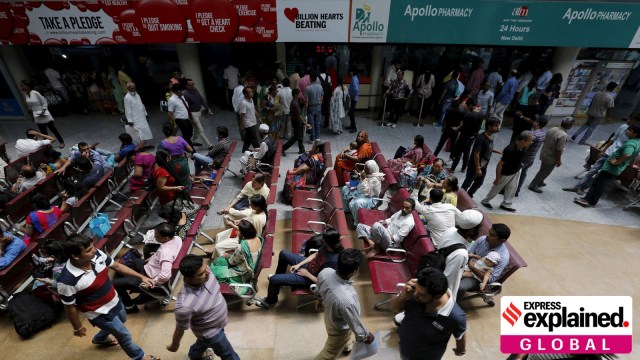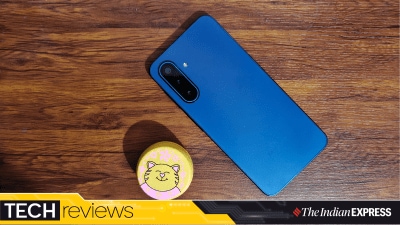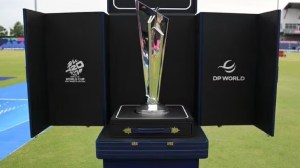Apollo Hospitals accused of being involved in ‘cash for kidney’ racket: 6 things you need to know
An investigation by the UK's Telegraph newspaper has found that Apollo Hospitals group is part of an international 'cash for kidney' racket. The group has denied all the allegations.
 Patients and their attendants are seen inside Apollo hospital in New Delhi, India, September 8, 2015. (Reuters/Adnan Abidi/File Photo)
Patients and their attendants are seen inside Apollo hospital in New Delhi, India, September 8, 2015. (Reuters/Adnan Abidi/File Photo)Apollo Hospitals chain is allegedly involved in an international ‘cash for kidney’ racket, in which impoverished people from Myanmar are lured to sell their kidneys for profit, an investigation carried out by the UK’s Telegraph newspaper has revealed.
The hospital group on Tuesday (December 5) vehemently denied the allegations, saying they were “absolutely false, ill-informed, and misleading.” Here are the highlights of the report.
1. What is the ‘cash for kidney’ racket?
The report has revealed that poor young villagers from Myanmar are being flown to Apollo’s Delhi hospital and paid to donate their kidneys to rich patients around the world. The racket involves “elaborate forging of identity documents and staging of ‘family’ photographs to present donors as the relatives of would-be patients,” it added.
A patient can’t receive an organ donation from a stranger in normal circumstances, under Indian and Burmese laws.
2. How do patients find donors?
As part of the investigation, one of the Telegraph’s reporter posed as a relative of a sick aunt, who urgently needed a kidney transplant but had no family members able to donate. The reporter reached out to Apollo’s Myanmar offices, and was told that a “stranger would be sourced to donate their kidney.”
An Apollo agent then put the reporter in touch with a 27-year-old Burmese man, who said he needed to sell his kidney as his elderly parents were “not in a good financial condition”.
The reporter was also told that a patient can choose their donor and then arrange a payment to the individual.
3. How much money does it cost to source the kidney?
The head of Apollo’s Myanmar operation gave an “Apollo-branded costs document” to the undercover reporter. It mentioned a host of expenses regarding kidney transplantation — from the drawing up of a family tree (Rs 33,000) to flights (Rs 21,000 each way) and “registration for the medical board” (Rs 16,700).
The document also said a patient can expect to incur, in total, up to (Rs 1,79,500). This, however, didn’t include the money given to a donor, which could be around 70 or 80 lakh in most cases.
4. How is the system being gamed?
Once an upfront cash payment is made, the donor is flown to India. The individual, along with the patient, then appears in front of the transplant authorisation committee for an interview.
The committee is responsible for reviewing the submitted documents and confirming the relationship between the recipient and donor. It comprises a central government officer, a state government officer, two retired IAS officers, and two hospital consultants who, while not on the hospital’s payroll, practise there as doctors.
However, one of the Apollo’s Myanmar agents told the reporter that the committee, which also includes several Apollo Hospital officials, is “just a facade” and asks only superficial questions about the relationship between the patient and donor.
The agents also forge family trees, household documents, marriage certificates and photographs to establish familial relationships between patients and paid donors.
“Household registrations, suggesting the donor and patient live together as relatives, are also created… These faked documents, along with a series of test results that confirm compatibility but not a genetic relationship, are then presented to the hospital authorisation committee for rubber-stamping,” according to the investigation.
5. Are there any doctors involved in the racket?
The Telegraph’s report has mentioned the name of Dr Sandeep Guleria, who trained in the UK and is a recipient of the Padma Shri. Patients and agents told the newspaper that Guleria was the surgeon who conducted the transplants.
The report also quoted Deccan Herald newspaper’s 2016 report, mentioning that Guleria “was expected to be summoned for questioning in connection to a separate kidney scandal linked to Apollo’s Delhi hospital.”
6. Have Apollo Hospitals been accused of being involved in such a racket before?
In 2016, two of Apollo’s secretarial staff at the Indraprastha Hospital were arrested alongside a gang of brokers and donors for allegedly being involved in a kidney racket. An investigation into the accused is yet to be concluded.
- 01
- 02
- 03
- 04
- 05






































